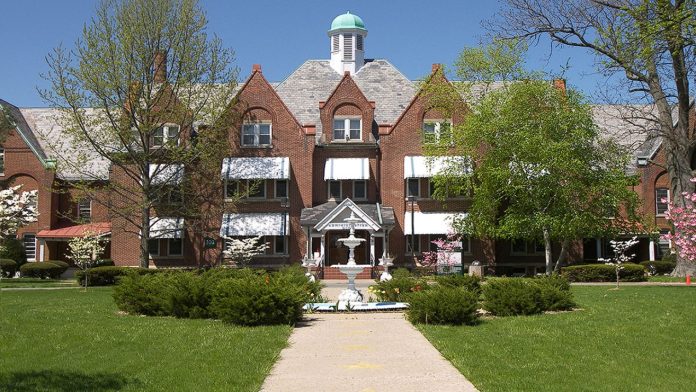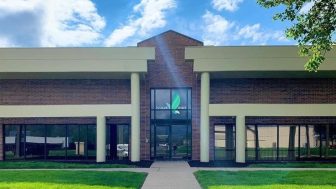Richmond State Hospital
498 Northwest 18th Street
Richmond, IN 47374
Richmond, Indiana
765-966-0511
Get Help Now - 463-888-9260
 Who Answers?
Who Answers?

Addiction Treatment Programs
Adult Program
Alcoholism
Cognitive Behavioral Therapy (CBT)
Opioid Treatment
Senior Drug & Alcohol Rehab
Teen & Adolescent Program
Adult Program
An adult program in Indiana offers recovery services to those who have become addicted to drugs or alcohol. Treatment may include inpatient or outpatient services, medication, and a variety of therapy methods.Alcoholism
If you choose an alcohol rehab in Indiana, you’ll progress through four stages of recovery. Rehab begins with treatment initiation, then moves to early abstinence, then maintaining abstinence, and finally advanced recovery. The outcome is a new, healthy sober lifestyle.Cognitive Behavioral Therapy (CBT)
Cognitive behavioral therapy in Indiana helps those struggling with addiction deal with triggers (something that compels a person to seek their substance of choice). This method teaches individuals healthy ways to handle situations without turning to substance use.Opioid Treatment
During opioid rehab in Indiana, addiction specialists help individuals stop abusing prescription drugs or other opioids. Comprehensive treatment includes inpatient rehab, behavioral therapy methods, and alternative therapies. Many rehabs in Indiana include detox and medication assisted treatment.Senior Drug & Alcohol Rehab
Elderly rehab in Indiana uses many of the same treatment methods as general population programs, but with a focus on challenges of aging. Methods often include 12-step programs, behavioral therapy, and motivational interviewing.Teen & Adolescent Program
Each young adult program in Indiana covers a wide range of addictions. Programs offer evidence-based therapies to treat alcohol, heroin, opioid, cocaine, benzodiazepine, and marijuana addictions, among others.Levels of Care
1
Detox & MAT
Detox in Indiana involves 24/7 professional care while substances are cleansed from your body. Medications are... often given to alleviate withdrawal symptoms during this time. The process varies in length, depending on your history of dependency and the type of drug.Read More
2
Inpatient Rehab
During inpatient reahb, you live at the treatment facility and participate in several forms of therapy through...out each day. You also engage in forms of psychotherapy, which usually includes group and family therapy as well as individual counseling. Many programs also offer holistic treatment and recovery-focused life skills training.Read More
3
Dual Diagnosis & Mental Health
Dual diagnosis in Indiana treats co-occurring disorders, meaning it addresses both your mental health and reco...very needs. A multidisciplinary team of psychiatrists and addiction experts work together to ensure all aspects of your mental and physical health are treated.Read More
Insurance
 Financial Aid
Financial Aid
If you need financial assistance to help pay for alcohol and drug rehab in Indiana, you may be eligible for fi...nancial aid. Financial assistance options include grants, scholarships, non-profit programs, personal funding, and health insurance programs to help you manage the expense of substance abuse treatment.Read More
 Medicaid Accepted
Medicaid Accepted
If you're eligible for Medicaid (called Indiana Medicaid/Hoosier Healthwise), you can use your coverage to hel...p pay for alcohol and drug rehab in Indiana. In most cases, Medicaid will cover most or all of the costs of treatment, including rehab.Read More
 Medicare Accepted
Medicare Accepted
If eligible, Medicare can be used to cover the cost of alcohol and drug rehab in Indiana. The amount of covera...ge it provides depends on many things, so it’s a good idea to contact your provider and get specific details.Read More
 TRICARE
TRICARE
Administered by the Department of Defense, TRICARE offers comprehensive military health insurance plans for ac...tive and retired military members and their families. Similar to PPO programs offered by private insurance companies, TRICARE covers multiple levels of care for addiction treatment, including detox, inpatient rehab, and outpatient services.Read More
 Private Insurance
Private Insurance
If you have private rehab insurance, you may be able to use your coverage to pay for some or all of your treat...ment in Indiana. Your insurance policy determines the amount of coverage, and you may be left with some out-of-pocket costs like a co-payment, or co-insurance. Check with your insurer for more information.Read More
 Self-Pay Options
Self-Pay Options
For those entering alcohol or drug rehab in Indiana, self-pay options are a common method of paying for treatm...ent. Examples of private pay include paying in cash, using a credit card, or taking out a personal loan.Read More
Contact Richmond State Hospital




